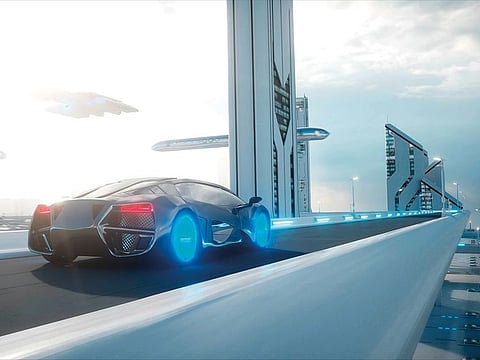Charging towards an electric tomorrow
Paradigm shift sees mainstream brands getting into electric vehicle technology

The melting poles will soon raise the oceans of the world, sending them out in a murderous rush that will inundate cities and wipe out the human race. While this is the most widely portrayed doomsday scenario in literature and movies, real Armageddon is unlikely to be brought about by swelling water bodies, but by the shrinking reserves of another, considerably thicker fluid — oil. Although no mainstream movie has yet been made on this subject, geologists believe that the colossal engine that drives human civilisation like a well-oiled machine will come to a grinding halt much sooner than we’ve thought. And this catastrophic situation could be unleashed way before the world decides on a viable renewable alternative to its dwindling fossil energy sources, which are being burned at a terrifying rate.
For petrolheads, it’s scary imagining a time when V12s and V8s start pushing up daisies. But the reality is that the automobile world of tomorrow belongs to the up and coming crop of electric vehicles. As we enter the second quarter of 2021, the industry is still very much driven by fossil fuels, but the onslaught of electrification has gained unprecedented momentum over the past twelve months. They still make up just over 2 per cent of the global vehicle market but models like the Porsche Taycan and the BMW iX establish the fact that we have come a long way from when it was just a small arena with brands like Tesla and Nissan playing it out.
Moreover, cars like the Taycan and the iX help allay fears to a great extent, that driving an electric car is a sterile, less exhilarating experience than driving a fossil fuel powered car. With performance ingrained in their DNA, these German brands have gone that extra mile to make sure their electric vehicles offer performance credentials that are worthy of their storied nameplates. With the Taycan already on sale in the UAE, and the BMW iX and i4 coming in later in the year, Tesla has some serious competition to deal with in our market. Even if they do not attain sales volumes like their petrol powered brethren, being backed by engineering and technological might of such established brands, these new entrants are surely going to open up the EV market to middle class and affluent early adopters.
The technology still being relatively nascent, and economies of scale not at optimal levels, these cars could be comparatively more expensive, but to ride out the era of oil depletion, would you mind paying that difference?


